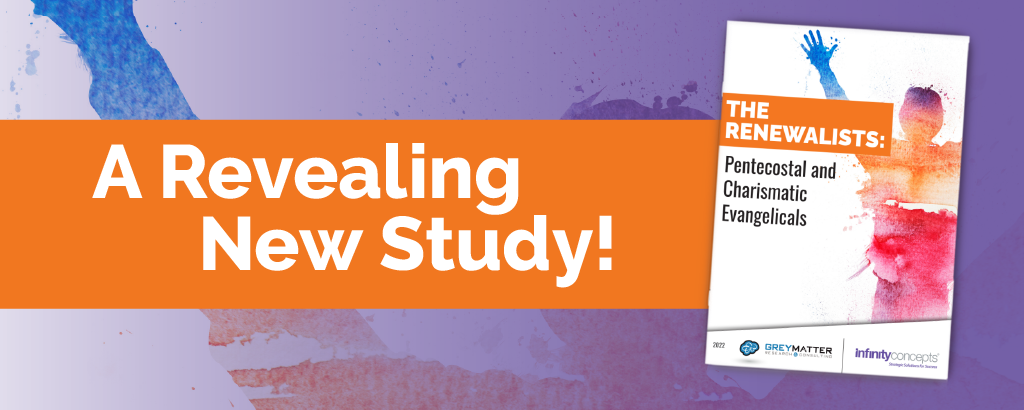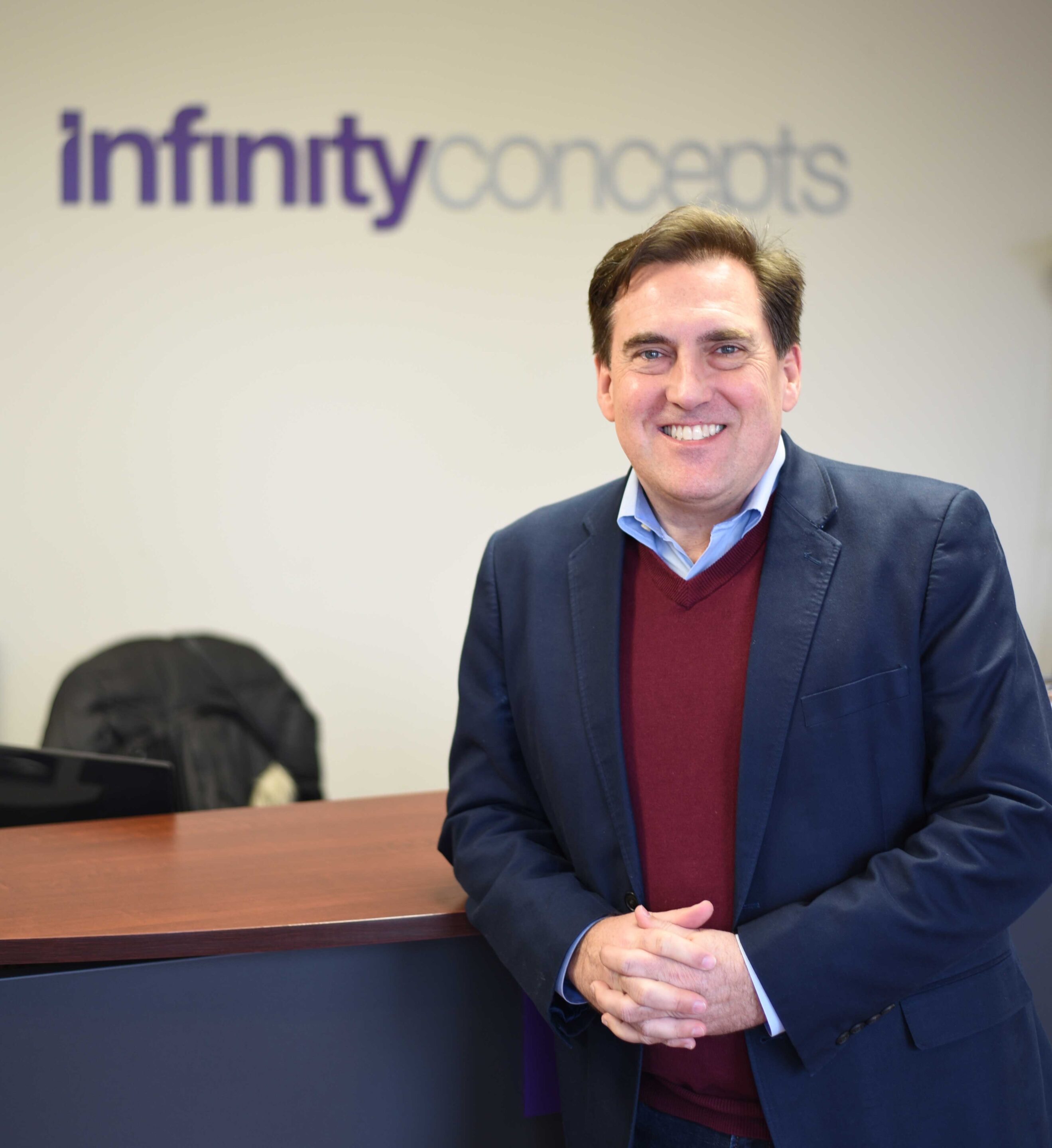EXPORT, PA – A new study from Infinity Concepts and Grey Matter Research explores the world of Pentecostal and Charismatic evangelicals, and how they differ from other evangelical Christians.
The findings are detailed in The Renewalists: Pentecostal and Charismatic Evangelicals, a study of over 1,000 American evangelical Protestants released today.
According to the authors, one of the greatest challenges was simply defining what a Renewalist (Pentecostal or Charismatic) evangelical even is.
“Three main ways of defining Renewalists traditionally have been people who consider themselves to be Pentecostal or Charismatic, attend a Pentecostal or Charismatic church, or speak in tongues,” says Mark Dreistadt, founder and president of Infinity Concepts. “The challenge is that there is relatively little overlap among these three definitions.”
The study found that while 36% of all American evangelical Protestants qualify as Renewalists according to at least one of these definitions, only 6% qualify through all three.
“Six out of ten people who have spoken in tongues do not call themselves either Pentecostal or Charismatic,” explains Ron Sellers, president of Grey Matter Research. “Among those who self-identify as Pentecostal or Charismatic, 53% do not attend a clearly Pentecostal church or denomination, such as the Assemblies of God or Foursquare.
“Among those attending a clearly Pentecostal church, 45% have never personally spoken in tongues,” Sellers adds. “Many evangelicals are Renewalist through one definition, but not through others. That is why we chose in this study to qualify people as Renewalist through any one of those three definitions.”
The research defines a Renewalist evangelical as anyone who self-identifies as Pentecostal or Charismatic or who attends a clearly Pentecostal/Charismatic church or who has personally spoken in tongues.
The study discovered that Renewalists tend to be somewhat younger than other evangelicals, more likely to be raising children, more ethnically diverse, and more likely to live in less traditionally Christian parts of the country (Northeast and West).
Renewalists also tend to be more spiritually engaged in several ways:
- They are more likely than other evangelicals to read the Bible daily (48% to 36%)
- They are more likely than others to attend church more than once a week (32% to 18%)
- They are more likely than others to participate in a small group for Bible study or prayer (47% to 32%)
- On average, they spend a higher proportion of their media use with specifically Christian media or content
However, this greater level of spiritual engagement does not extend to generosity.
Renewalists are as likely as other evangelicals to give to church and/or charity, but the proportion of their household income that is given away tends to be lower. The average proportion given to church is 20% lower for Renewalists compared to other evangelicals, while for charities and ministries outside of church, it is 28% lower.
The study also points out that while Renewalists give a lower proportion of their income to church, at the same time they have higher expectations for their church to be active in the community, through more evangelism, more community outreach, and more focus on social issues.
Renewalists are also more likely than other evangelicals to want their church to be different when it comes to political involvement, but the challenge is that they are about as likely to call for more political involvement (19%) as they are to want less of it (23%).
Finally, the majority of both Renewalist and non-Renewalist evangelicals switched to online church during the COVID-19 pandemic, but Renewalists are 35% more likely than other evangelicals to have “visited” online a church other than their own congregation, and 29% more likely than others to say their online church experience was better in at least one way than attending in person.
Dreistadt notes that all these issues combine to create some unique challenges for Pentecostal and Charismatic church leaders. “Renewalists provide less funding for their church, but at the same time have higher expectations for activities that require funding,” he explained. “They often disagree with each other on the issue of church and politics. And a significant number have already visited other churches online. This paints a picture of potential concern for the growth and stability of churches that serve this sector of the evangelical community.”
CLICK HERE FOR THE FULL REPORT
For interviews, contact:
- Clem Boyd, Infinity Concepts: clem@infinityconcepts.com, 724-930-4003, or
- Ron Sellers, Grey Matter Research: ron@greymatterresearch.com, 602-684-6294
Definition of “Evangelical Protestant”
This study uses the definition of “evangelical” favored by the National Association of Evangelicals, based on four key spiritual beliefs.
The Authors:
Infinity Concepts has served clients worldwide for 20 years as America’s premier Christian brand communications and fundraising agency.
Grey Matter Research is a marketing research and consumer insights company with extensive experience serving the charitable and faith-based sectors.

